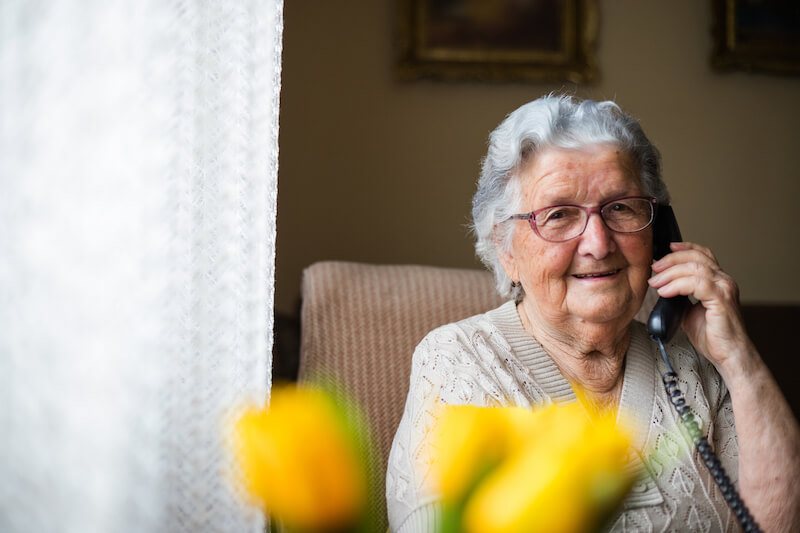Social Connections
For those who are ill, and their caregivers, well-being may depend on interaction with others. Finding ways to stay socially connected helps reduce loneliness and isolation.
Social Connections is non-medical support and engagement for individuals and families dealing with serious illness who could benefit from social interaction and support. Recognizing the risks of loneliness, HOC Navigators provides this no-charge service to combat social isolation.
Having a serious illness isn’t easy and can feel lonely. Social Connections provides supportive conversation and listening through ongoing phone calls or visits. Conversations are unique to whatever topic helps you feel less alone, at the frequency you’re comfortable. The goal is to develop a social connection that helps you feel supported.
Understanding the Risk of Loneliness:
Here is how lack of social interaction compares to more well-known risk factors*:
*Holt-Lunstad J, Smith TB, Layton JB (2010) Social Relationships and Mortality Risk: A Meta-analytic Review. PLoS Med 7(7): e1000316. https://doi.org/10.1371/journal.pmed.1000316
*Heart, Vol. 102, No. 13.
*The Journals of Gerontology: Series B, online 2018
Ways to Reduce Isolation and Loneliness
Focus inward
Address the negative thoughts underlying your loneliness. This includes thoughts about your self-worth and how others perceive you, which may be bringing you down rather than lifting you up.
Engage in meaningful activities
Consider participating in community or social group membership, church choirs, book clubs, library discussions or other programs.
Intentionally show appreciation
Show appreciation for your caregiver or the one you are caring for. Even small efforts can make someone feel appreciated and grateful.
Spend time with people
Surround yourself with people who have healthy habits and participate in physical activities that match your own abilities.
Volunteer for a cause
Volunteer for a cause that you believe in. It’s good for you and good for the world.
Consider an animal companion
Petting a beloved animal is associated with positive health benefits.
Caregiving Takes a Toll
Tending to someone you love is hard work and many of us do it alone. It is important to reduce the stress of caregiving as much as you can—for your own health. When caregivers are not stressed, they are more likely to experience positive emotions from the person they are caring for and gain strength from having played a vital role in another person’s life.
Social Connections can help lend a listening ear and connect to community resources through supportive phone calls or visits. This is a vital step in reducing isolation and getting the help you need.




